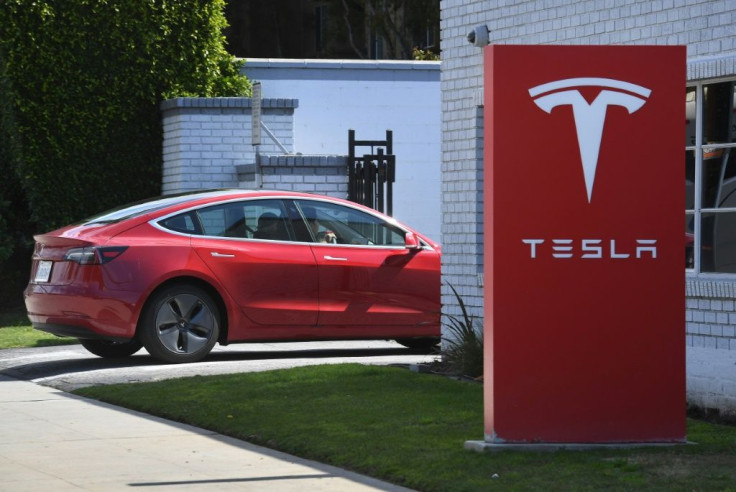Tesla Stock Price To Hit All Time High Of $400 In 2020, Analyst Predicts

That Tesla's stock is up 4 percent year-to-date is cheerful news in itself.
It also seems to have recovered from the battering it took July 25 when it lost 13.6 percent to plunge to $228.82 at the close, the stock's biggest drop since it fell 13.9 percent on Sept. 28, 2018. At the end of trading Monday, however, Tesla's stock stood at $345.09, up 2.4 percent.
Tesla's continuing recovery was apparently good enough to goad investment bank and financial services company Jefferies Group LLC into reaffirming its buy recommendation for the stock. Philippe Houchois, Equity Research Analyst, U.S. & European Auto at Jefferies, claims Tesla is now setting the foundation for a return to growth in 2020.
Jefferies raised its price target for Tesla to $400 from $300 Monday. It also reaffirmed its previous "buy" rating for Tesla's stock.
Jefferies said it increased its price target because it expects higher Tesla earnings and an improved balance sheet over the next months. It raised its 2020 EBIT guidance for Tesla to $1.6 billion, up 24 percent, after the company's third quarter earnings showed a "clear trend of cost performance."
Jefferies new $400 price target is a huge 15 percent increase from where Tesla currently trades. It's also 4 percent higher than Tesla' all time high price of $383.45 on June 23, 2017.
Other analysts continue to note Tesla can produce cars but still can't produce profits. Tesla can now also maintain gross margins, which is the difference between how much cars sell and what they cost to make. Tesla's gross margin (excluding credit) in Q3 "was above the 20% level from where we think Tesla starts building profitability," wrote Jefferies. Houchois forecasts Tesla's gross margin to hit 23 percent by 2021 compared to 18.8% in 2018.
Also in Tesla's near-term favor is the deceleration in the average selling prices it charges for its electric vehicles (EVs). Jefferies believes selling prices will pick-up again once the Tesla Model Y crossover EV begins production in 2020.
Jefferies also boosted its full-year 2019 EBIT estimate by $83 million. It projects Tesla's capex in Q4 will be anywhere between $550 million to $600 million. Full year capex might come in below $1.5 billion.
Jefferies, however, warns of significant bumps in the road ahead for Tesla. It fears Q4 might show weak delivery numbers. Tesla's low levels of capex are also concern.
© Copyright IBTimes 2024. All rights reserved.




















